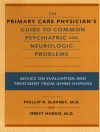Attention, Balance and Coordination is the most up-to-date
handbook for professionals involved in education and child
development, providing a new understanding of the source of
specific behavioural problems.
* Written by a respected author of acclaimed titles in this
field
* Explains why early reflexes are important, their functions
in development and their effects on learning, behaviour
and beyond – also covers adult neurological
dysfunctions anxiety and agoraphobia
* Builds on an ABC of Attention, Balance and Coordination
to create a unique look across specific learning difficulties,
linked by common motor skills challenges resulting from
neuro-developmental deficiencies
* Includes the INPP Developmental Screening Questionnaire
together with guidance on how to use and interpret
it
विषयसूची
About the Authors.
Contributors.
Preface.
Acknowledgements.
1 Windows on the Brain.
Introduction.
Developmental Readiness for Education.
What is Neuro-Developmental Delay?
What is the Connection Between Neuro-developmental Delay and Specific Learning Difficulties?
Primitive and Postural Reflexes – the Medical Model.
Neurological Dysfunction in Specific Learning Difficulties.
Diagnostic Criteria, Signs, and Symptoms of Specific Learning Difficulties.
Dyslexia – Signs and Symptoms.
DCD (Dyspraxia).
Attention Deficit Disorder (ADD).
Underachievement.
The Sensory-Motor Connection.
Theories of Motor Control.
2 The Significance of Primitive and Postural Reflexes.
What Are Primitive and Postural Reflexes?
What can Primitive and Postural Reflexes Tell Us?
The Developing Brain.
The Emergence of Spinal Reflexes.
Reflexes Mediated at the Spinal Level.
Reflexes Mediated at the Brainstem.
Reflexes as Reflections of Hierarchical Development.
Areas of the Brain Involved in the Mediation of Primitive and Postural Reflexes.
The Multisensory Reflex – the Moro Reflex.
Characteristics of the Fear Paralysis Reflex.
Moro Reflex Activators.
Functions of the Moro Reflex.
Physiological Response to the Moro Reflex.
Implications of a Retained Moro Reflex.
Symptoms of Scotopic Sensitivity Syndrome (SSS).
General Symptoms Associated with a Retained Moro Reflex.
Behavioural Outcomes Associated with a Retained Moro Reflex.
3 Primitive Reflexes of Position.
Tonic Labyrinthine Reflex (TLR).
Development of Head Control.
Why Is Head Control So Important?
The Tonic Labyrinthine Reflex (TLR) and Early Feeding.
Asymmetrical Tonic Neck Reflex (ATNR)
Symmetrical Tonic Neck Reflex (STNR).
4 Primitive Tactile Reflexes.
Palmar Grasp Reflex.
Plantar Reflex.
Rooting Reflex.
Suckling and Sucking Reflexes.
The Spinal Galant Reflex.
5 Postural Reflexes.
Head Righting Reflexes.
Parachute Reflex.
6 Use of the INPP Screening Questionnaire.
The INPP Screening Questionnaire for Children.
How to Use the INPP Questionnaire.
7 Post-natal Factors Using the INPP Questionnaire.
Schooling.
Scoring the INPP Questionnaire.
Research into the Reliability of the INPP Questionnaire.
8 The Development of the Vestibular-Cerebellar Theory.
Origins.
Development of Balance.
Cerebellum and Balance.
Significance of Vestibular Dysfunction.
Symptoms of Vestibular Problems.
9 The Effects of Neuro-developmental Delay in Adults and in Adolescents.
Problems in Higher Education.
Vestibular Connections to the Reticular Activating System(RAS).
Adolescent and Adults Manifestations of NDD – a Clinical Perspective.
10 Development of the INPP Method – from Theory to Fact.
11 Other Factors in Specific Learning Difficultes.
Unravelling the Threads.
Use of Physical Tests to Assess Neurological Readiness in Schools.
Application of the INPP Method.
The Neuro-educator.
Attention, Balance, and Coordination.
APPENDIX 1 Screening for Neurolological Dysfunction in the Specific Learning Difficulty Child.
Abstract.
Introduction.
Early Identification.
Aim to the Study.
Method.
Analysis to the Questionnaire as a Means of Identifying Specific Learning Difficulties.
Analysis of Individual Questions.
Results.
Discussion.
Conclusions.
APPENDIX 2 Frequency Range of Vocals and Musical Instruments.
Glossary of Terms.
Bibliography.
Index.
लेखक के बारे में
Sally Goddard Blythe is Director for the Institute of Neuro-Physiological Psychology in Chester, which specialises in the assessment and supervision of remediation programmes for children and adults with specific learning difficulties, agoraphobia and panic disorder. She is the author of a number of widely acclaimed books, including Reflexes, Learning and Behaviour (2002), The Well-Balanced Child (2005) and What Babies and Children Really Need (2008).












